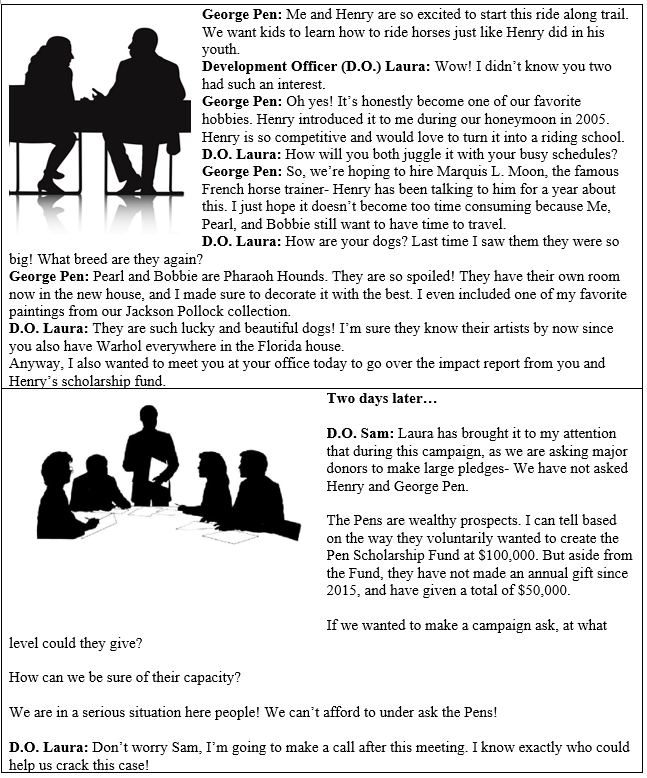The Traits of a Storyteller
Dear Diary,
Would you believe me if I told you that researchers are also storytellers?
A storyteller is someone who shares written or oral tales, based on past and/or present situations that are embellished or nonfiction. The tales are then dispersed through different channels and shared from one person to another.
A development officer is a known storyteller. He or she shares the impact of their organization’s mission and why funding is imperative. Based on the stories and impact shared, the person on the receiving-end is either effected in a positive or negative way. It is important that a development officer understands how their message, words, body language, and overall story relates to the receiver. And as the storyteller, he or she is consistently collecting material.
But storytelling is not just part of a development officer's role, a researcher is a significant storyteller that vividly paints genealogies, describes real world industries and philanthropy in layman’s terms, and with specificity guides the narrative. A researcher is skilled in the art of piecing together details and facts on prospects either for a profile or in conversation with a colleague. At workshops and conferences researchers have the space to share their stories, experiences and lessons.
So, when asked if they regarded themselves as storytellers some researchers responded with,
“When - and in whatever format - we deliver research, we are telling the stories of our prospects and their philanthropy. When we train, blog, or advocate, we are telling our own stories and why we love prospect research” -Sarah Bernstein (@srbernstein)
“Absolutely! I tell the story of a prospect’s history and what they are passionate about. I then weave that into the story of my organization to see where philanthropic partnerships can be made”-Anne Givens (@anniecatg)
"Human beings require a narrative to make sense of facts. We tell the stories of our prospect's lives, interests, and relationships with us. Even when analyzing an avalanche of data, we are telling a story. (Much like data-driven journalism)"-Deborah Drucker (@deborahdrucker)
However, the lack of opportunity to be or feel like a storyteller is a reality many researchers also identify with,
“My gut reaction is no... I kinda wish I did, though! More often I focus on reporting the facts available. For me personally, the templated approach we have to individual research deliverables doesn't spur creativity/storytelling”- Anonymous
Storytelling is evident and powerful when you have the opportunity to be or feel like you can be creative, flexible, and have a clear platform. So, I must ask, can you form an opportunity in which you are creatively sharing what you do with others? Can you ensure that you feel like a storyteller?
And to open this conversation up- If you work mainly with numbers and prospect management, do you consider yourself a storyteller?
If you work in another area of fundraising or even outside of the field completely, please share how you are a storyteller in your own profession.
Until next time, August 15th!





